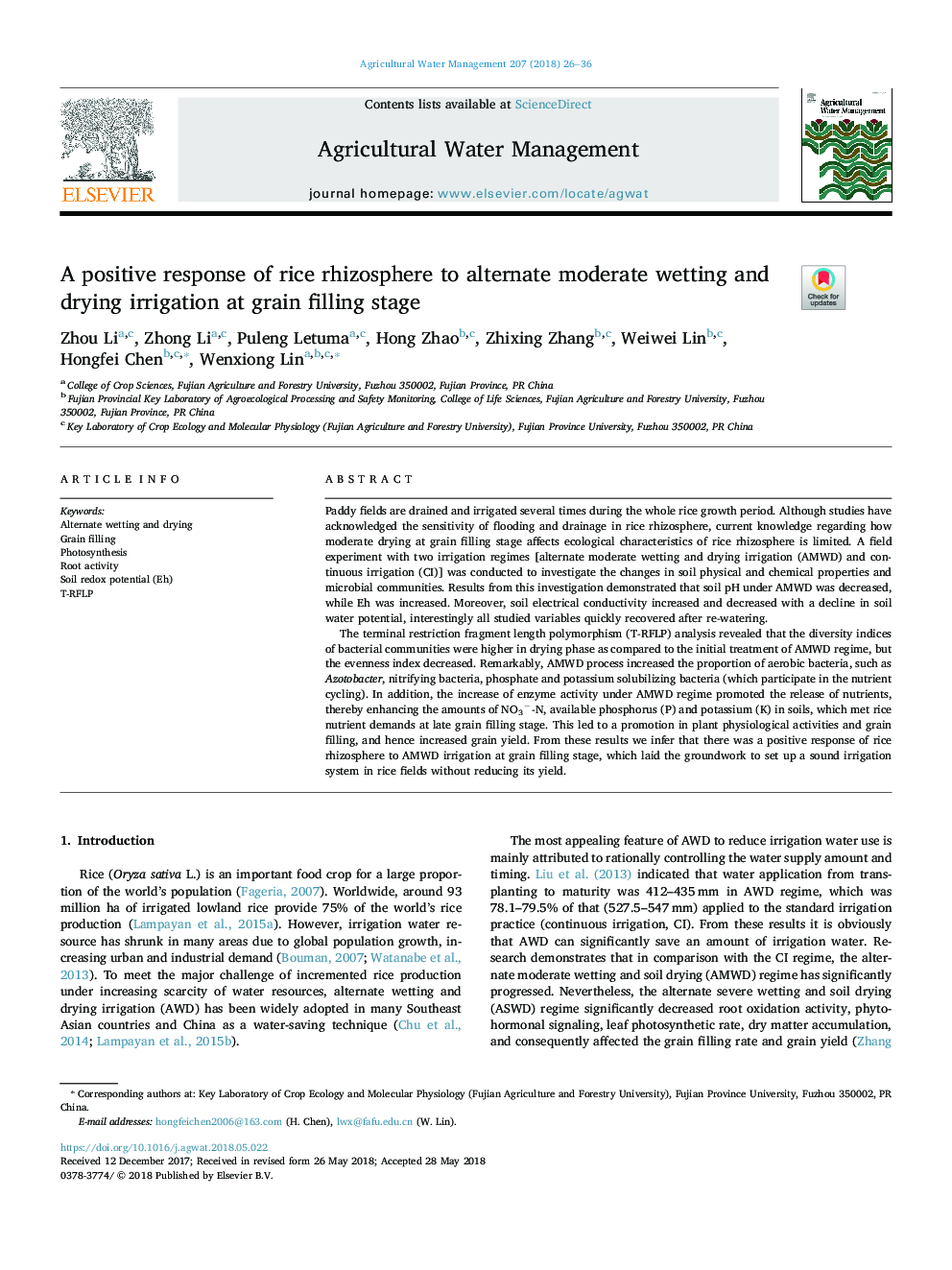| Article ID | Journal | Published Year | Pages | File Type |
|---|---|---|---|---|
| 8872826 | Agricultural Water Management | 2018 | 11 Pages |
Abstract
The terminal restriction fragment length polymorphism (T-RFLP) analysis revealed that the diversity indices of bacterial communities were higher in drying phase as compared to the initial treatment of AMWD regime, but the evenness index decreased. Remarkably, AMWD process increased the proportion of aerobic bacteria, such as Azotobacter, nitrifying bacteria, phosphate and potassium solubilizing bacteria (which participate in the nutrient cycling). In addition, the increase of enzyme activity under AMWD regime promoted the release of nutrients, thereby enhancing the amounts of NO3â-N, available phosphorus (P) and potassium (K) in soils, which met rice nutrient demands at late grain filling stage. This led to a promotion in plant physiological activities and grain filling, and hence increased grain yield. From these results we infer that there was a positive response of rice rhizosphere to AMWD irrigation at grain filling stage, which laid the groundwork to set up a sound irrigation system in rice fields without reducing its yield.
Related Topics
Life Sciences
Agricultural and Biological Sciences
Agronomy and Crop Science
Authors
Zhou Li, Zhong Li, Puleng Letuma, Hong Zhao, Zhixing Zhang, Weiwei Lin, Hongfei Chen, Wenxiong Lin,
